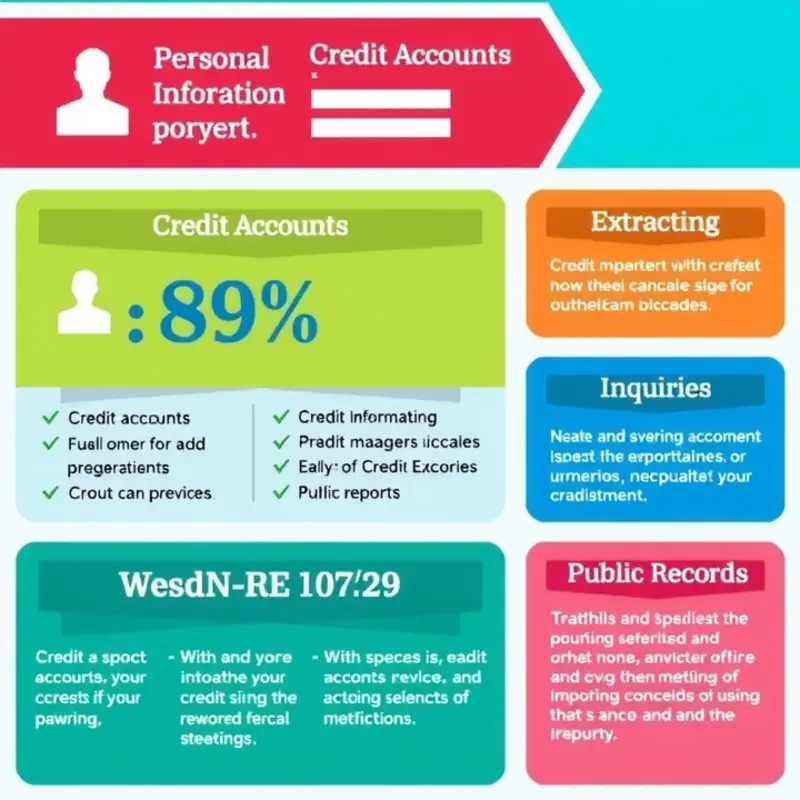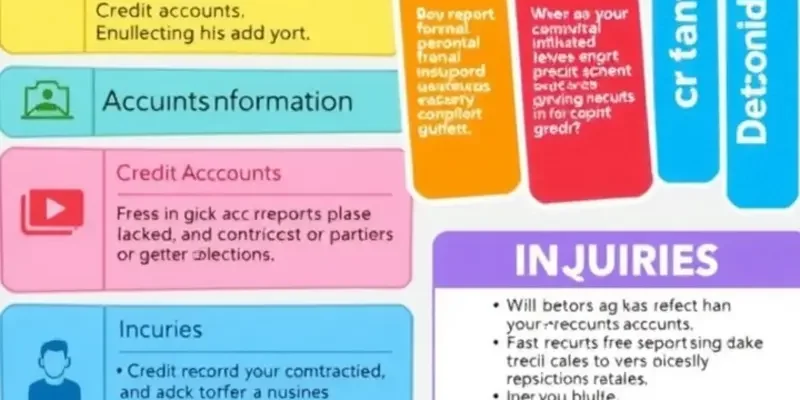Understanding your credit report is vital for young professionals, students, and families aiming for financial clarity. It serves as a snapshot of your financial health, helping landlords and lenders assess your reliability. For first-time renters, a solid credit report can mean the difference between getting a lease or facing rejection. Young couples, students, and families must become adept at interpreting this essential document to unlock opportunities, such as renting a home or applying for loans. Your credit report influences more than just loan rates; it can determine where you live, how much you pay for insurance, and even affect job prospects. In this guide, we’ll walk you through reading your credit report in detail and equip you with the insights needed to maintain a strong credit profile.
Understanding the Components

A credit report is an essential document that offers a snapshot of one’s financial behaviors and creditworthiness. It is crucial for young professionals and families, especially when renting and dealing with financial institutions. Knowing its structure and implications helps maintain a robust credit profile.
Your credit report consists of several key sections. Firstly, personal information includes your name, address, Social Security number, and employment details. This section ensures the report connects accurately to your identity. Errors here might stem from variations in spelling or outdated addresses, potentially misaligning your credit history. Check this segment for accuracy to prevent mix-ups with others.
The second core element is credit accounts, also known as trade lines. This section lists your credit cards, loans, and payment history. Each account entry displays pertinent details like the creditor’s name, type of account, credit limit, account status, and payment timeline. Consistently reviewing this area is vital. Ensure reported balances and account status match your records to avoid unwarranted concerns from lenders.
Now, let’s talk about inquiries. This part details parties who have accessed your credit report. There are two types: hard inquiries and soft inquiries. Hard inquiries occur when a lender checks your credit for an application. These can slightly lower your credit score. Conversely, soft inquiries arise when you check your own report or companies pull it for promotional offers; these do not affect your score. Regularly monitor these to spot unauthorized checks which could signal identity theft.
Finally, public records section includes bankruptcies, foreclosures, and tax liens. These have a significant negative impact on your credit score. It’s important to note that only certain public records appear here and vary by jurisdiction. Stay informed about entries in this section, especially since errors or outdated information could unduly harm your credit profile.
Spotting Errors and Their Implications
Recognizing errors in your credit report allows correction opportunities before they damage your creditworthiness. Common mistakes include incorrect claims about missed payments or accounts that aren’t yours. Rectifying these errors often involves contacting the creditor or disputing through the credit bureau. Regularly monitoring your report assures that discrepancies don’t linger.
Maintaining a healthy credit profile means understanding these components. Vigilance in ensuring accuracy and disputing inaccuracies when found is paramount. This attention to detail doesn’t just improve credit scores but also eases interactions with landlords and lenders.
For more insights on handling rent-related finances, explore this guide on managing security deposits. These tips complement understanding your credit report, fostering better financial decisions in your renting journey.
Navigating and Managing Your Credit Report

Understanding your credit report is a crucial step in managing your financial health. Young professionals and families often face financial decisions such as renting a new apartment or buying a home, both of which require strong credit. Here’s how to navigate and effectively manage your credit report.
Accessing your credit report is straightforward. Start by requesting a free report from one of the major credit bureaus once a year. It’s essential to verify that the information is accurate and up-to-date. Mistakes on your report can adversely affect your credit score, making it more challenging to secure favorable loan terms or rental agreements.
Once you obtain your report, take time to interpret it. Look for sections detailing your open accounts, payment history, and any negative marks like collections or bankruptcies. Pay special attention to account balances and the status of each account to ensure they match your records.
If you find inaccuracies, dispute them directly with the credit bureau. Provide documentation supporting your claim. The bureau is required by law to investigate and respond, typically within 30 days. Removing incorrect information can significantly boost your credit score.
To improve your score, focus on timely bill payments and reducing debt levels, especially credit cards. Maintaining a low credit utilization ratio—your credit card balances relative to your credit limits—is crucial. Aim to use less than 30% of your total available credit.
As you transition into new life stages, such as renting a first apartment or buying your home, building credit responsibly is vital. One strategy is to open a credit account if you don’t have one and use it wisely. Regular payments help establish a positive credit history. If you’re renting, ensure your rental payments are reported to the credit bureaus, as they can positively impact your score. For tips on how to manage rental aspects effectively, you might find value in this Syracuse renting guide.
Maintaining a strong financial reputation requires ongoing effort. Regularly review your credit report, manage your debts carefully, and avoid opening too many new accounts at once. Consistent financial habits will not only improve your credit score but also ensure greater financial flexibility in the future, whether you’re planning to move for a job opportunity or settling down with a family.
By actively managing and navigating your credit report, you put yourself in a stronger position to achieve your financial goals. Remember, your credit score is not just a number—it’s a representation of your financial reliability and discipline.
Final words
Becoming familiar with your credit report is an empowering step toward achieving your financial goals. By understanding its components and knowing how to manage your credit, you’re setting yourself up for success in securing rental agreements, better loan offers, and overall financial stability. Remember, a good credit score takes time and diligent effort, but by actively monitoring your credit report, you can ensure that it reflects your true financial character. Stay proactive, make informed decisions, and take control of your financial future.









